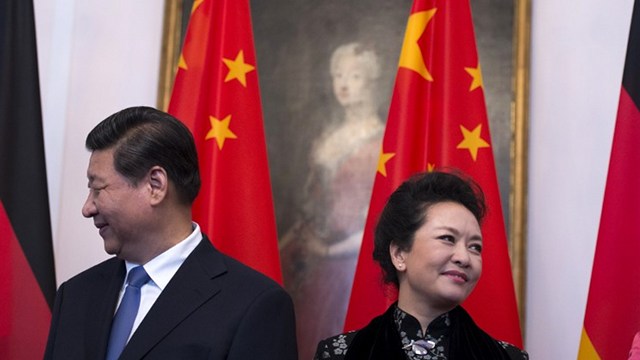SUMMARY
This is AI generated summarization, which may have errors. For context, always refer to the full article.

SEOUL, South Korea (UPDATED) – China’s president flew to Seoul Thursday, July 3, for a state visit focused on nuclear developments in North Korea, which has spent the past week playing hawk and dove with threats, missile tests and peace offers.
It will be Xi Jinping’s first trip as head of state to the perennially volatile Korean peninsula, and his second summit with South Korean President Park Geun-Hye who visited China last year.
North Korean leader Kim Jong-Un is still waiting for an invitation to Beijing – a perceived snub that speaks to the strained relationship between Pyongyang and its historic and most important ally.
“No previous Chinese leader has put South Korea before and above the North like this,” said Aidan Foster-Carter a Korea expert at Leeds University.
In what some saw as a display of pique at Xi’s visit, North Korea conducted a series of rocket and missile launches into the Sea of Japan (East Sea) over the past week, triggering protests from Seoul and Tokyo.
The North has been in particularly mercurial rhetorical form of late, one day threatening a “devastating strike” against the South and the next proposing a suspension of all hostile military activities.
South Korea on Tuesday rejected the peace offer as “nonsensical” and suggested that Pyongyang show its sincerity by dumping its nuclear weapons.
Xi and Park will hold their summit after Thursday’s official welcoming ceremony, and the two leaders are then expected to sign a joint communique.
Strong line on North Korea?
Seoul will be hoping for a strong statement on North Korea’s nuclear weapons program, but analysts said Beijing was unlikely to up the rhetorical ante by any significant degree.
“That would go against China’s traditional diplomatic pattern,” said Kim Joon-Hyung, professor of politics at Handong Global University.
“Xi will probably keep to the general line of urging the denuclearization of the Korean peninsula, rather than criticizing the North directly,” Kim added.
As the North’s diplomatic protector and chief economic benefactor, China has repeatedly been pressured by the international community to use its leverage to rein in Pyongyang’s nuclear ambitions.
But while Beijing has become increasingly frustrated with the North’s missile and nuclear tests, it remains wary of penalizing the isolated state too heavily.
It is especially anxious to avoid any regime collapse that would result in a unified Korea with a US troop presence on its border.
Washington has played up Xi’s visit as evidence of Pyongyang’s deepening diplomatic isolation.
“The symbolism of a visit by a Chinese leader to Seoul against the backdrop of tensions between North Korea and its neighbous … is pretty striking,” US Assistant Secretary of State Daniel Russel told Agence France-Presse.
The wider background to Xi’s trip includes China’s response to the US “pivot to Asia” and the battle between the two major powers for regional influence.
China is currently South Korea’s largest export market and two-way trade stood at around $275 billion last year, but analysts say Beijing wants to move beyond economic ties and promote political and security links.
This leaves Seoul with a difficult balancing act, given its historic military alliance with the United States.
There are currently around 29,000 US troops stationed in South Korea, which is also protected by the US nuclear umbrella.
So how far would South Korea be willing to go in developing its ties with China beyond the economic sphere?
“Partly it depends who holds power in Seoul,” Foster-Carter wrote on the NK News website.
“Conservatives like Park will ensure the US alliance is not weakened, especially while North Korea continues to snarl.
“But South Korean presidents change every five years. If liberals return to power in 2018, the left’s neutralist and Yankee-bashing tendencies might come to the fore,” he said.
The military ambitions of the other main US ally in the region, Japan, is also likely to figure in Thursday’s summit talks, with both China and South Korea concerned by the recent change to its pacifist constitution. – Rappler.com
Add a comment
How does this make you feel?
There are no comments yet. Add your comment to start the conversation.